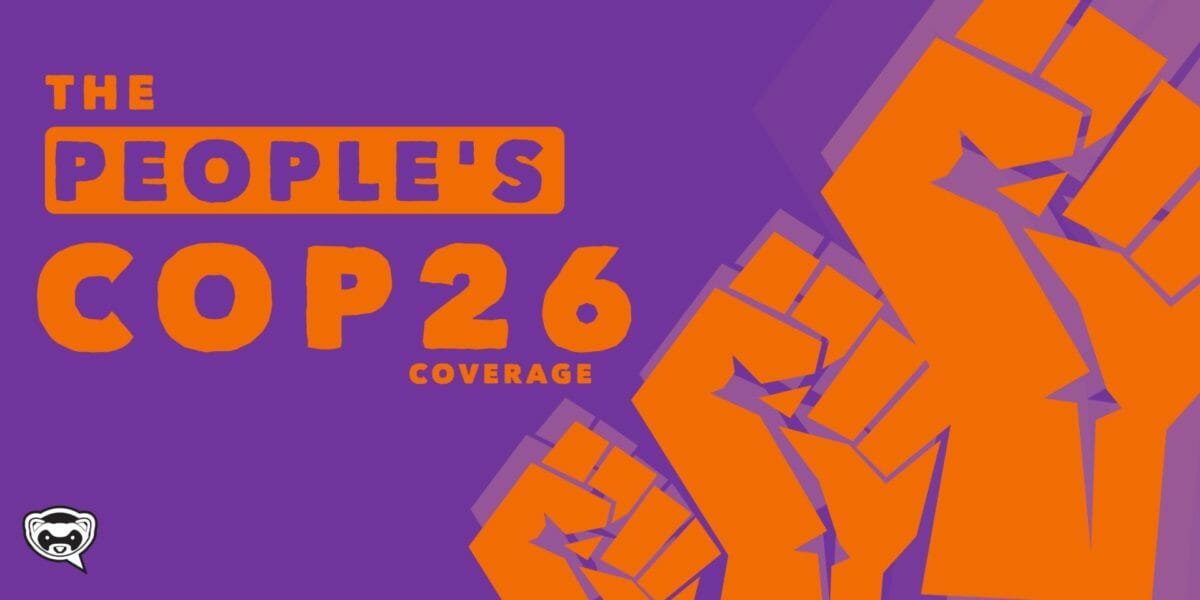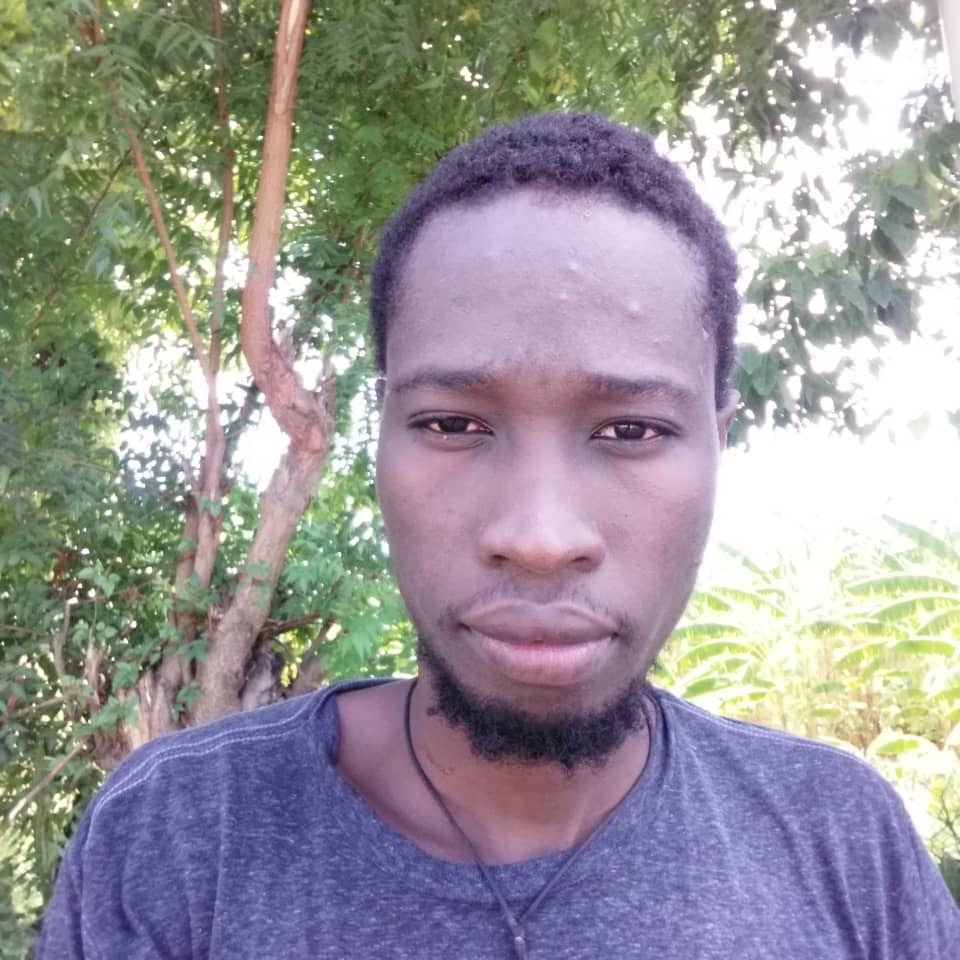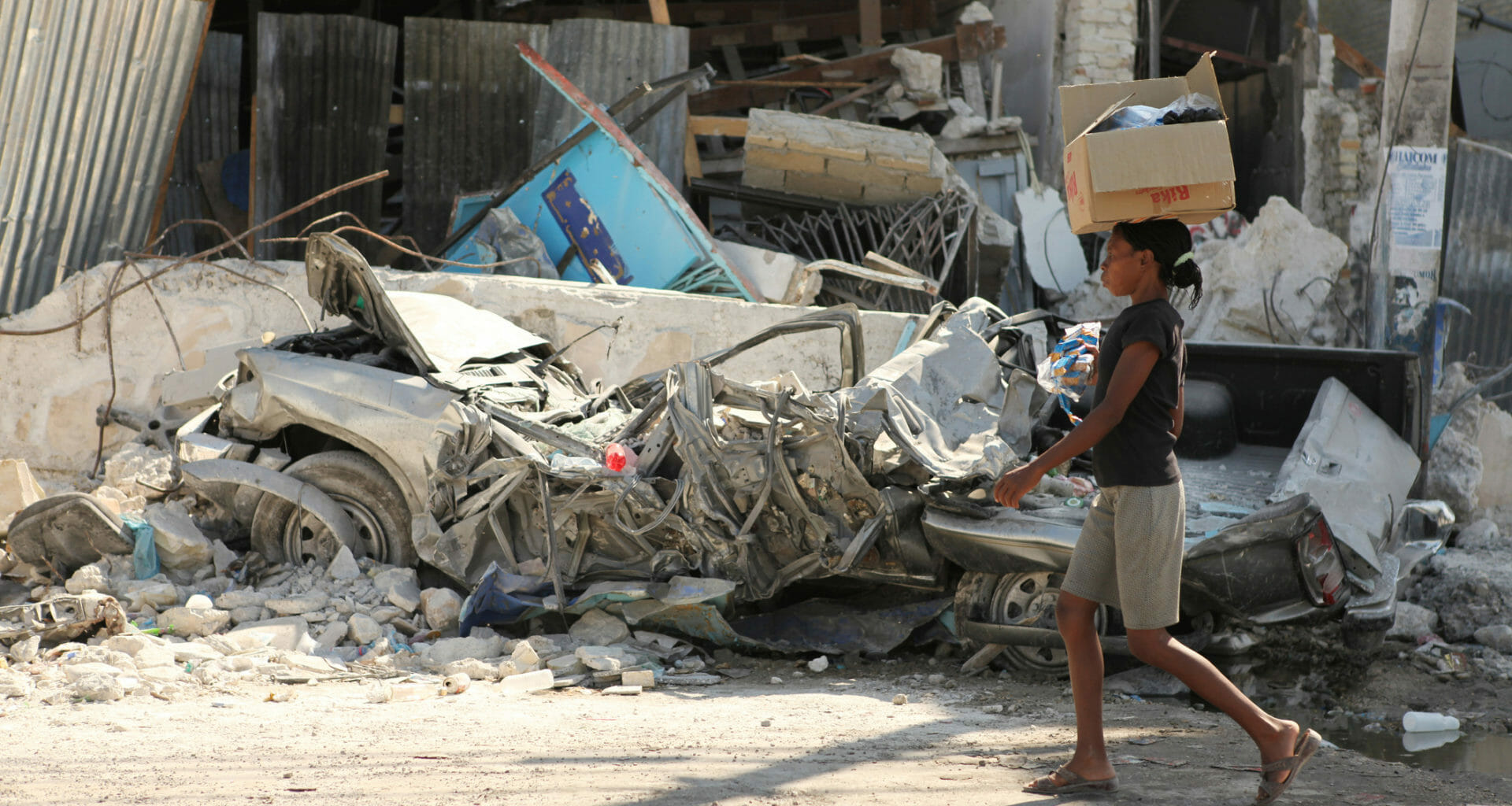
“I come from a country which is already extremely affected by climate change,” explains Macius Djivenson, a 24-year-old law student and climate activist from Haiti.
“The IPCC says we are moving in the wrong direction and climate justice must be at the heart of these negotiations. It’s important that young people like me have their voices heard.”
Haiti’s ex-Prime Minister Joseph Jouthe has compared the climate emergency to a “violent act” – the country has been repeatedly devastated by the impacts of natural disasters from hurricanes and flooding to droughts and earthquakes for over a decade. It’s further compounded the country’s struggles with poverty and political instability.
And though Haiti’s greenhouse gas emissions amount cumulatively to less than 0.03 per cent of global carbon emissions, according to Germanwatch’s Global Climate Risk Index 2021, the small Caribbean country was the third most seriously affected by extreme weather in the world.
So for Djivenson, the voices of young climate activists like him – engaged in a range of both grassroots action and global ambassador roles – are essential. A climate activist since 2015, he set up Sustainability Week in Port au Prince and is a member of a world forum of young people through C40 Cities.
But despite being accepted as a delegate and beginning his visa application nearly three full months before the COP26 summit in Glasgow, he was unable to secure the paperwork he needed to travel to the climate talks.
He is far from alone. The Ferret has revealed that the world’s top 10 oil producing countries have sent almost twice as many delegates to COP26 as the group of 38 small island states – including Haiti – most at risk from the climate crisis.
Such was the extent of problems facing delegates that the Cop26 Coalition set up a visa support service, which has assisted over 200 people and advised thousands.
Problems, they say, include a “hostile attitude” from the UK Home Office towards those travelling from countries in the global south, along with a failure to honour a pledge to offer Covid-19 vaccines to all delegates.
Constantly changing Covid-19 restrictions for those entering the UK, with many of the countries worst affected by climate change red listed until last month, led to complicated and costly journeys, while the shortage of affordable accommodation has prevented some from travelling.
As a result, the coalition claims that COP26 is the most white and exclusionary to date. And the UK Government, it claims, is largely responsible.
Exact numbers are hard to quantify. “What we know for certain is that thousands of people from the global south are being excluded and they represent tens of millions of voices from those right on the frontline of this crisis who are not going to be heard,” says Rachael Osgood, visa support service coordinator.
“We are looking at global north countries making decisions with minimal accountability to those least responsible and affected and that goes against everything COP should stand for.”

For Djivenson and fellow climate change activists in Haiti the issue arose when he was told that in order to get a UK visa he would need to get a biometrics identification done, which due to the insecurity in Haiti is only available in the Dominican Republic. For that, he needed a visa.
“Because of the vulnerability of Haiti there have been extreme measures imposed by the leaders in the Dominican Republic,” he says. “They decided to reduce the number of visas they were giving out. And I didn’t get one.”
Representatives for the coalition’s visa and legal advice service claim they raised this and many other issues with the UK Home Office, but it took them three months to even identify a liaison officer to discuss cases with.
Although delegates from Haiti’s Ministry of Interior – who did not have to provide biometric ID – were able to come to Glasgow, the coalition does not know of any civil society representatives from the country who made it.
“To get a visa for the Dominican Republic there is a very high cost and it’s usually only the most powerful who can get them,” says Djivenson. “I find this really unfair. In past years this was easier.” It is also easier, he says, to get a visa for almost any other European country, as this can be done from Haiti.
Haiti is amongst the top three most vulnerable countries due to climate change. We are already suffering the consequences of climate change such as floods, droughts and heat waves. This is why our voice matters.
Macius jivenson
The UK Government, as the COP26 host country, should have done more to intervene, he claims. “Haiti is amongst the top three most vulnerable countries due to climate change. We are already suffering the consequences of climate change such as floods, droughts and heat waves. This is why our voice matters.”
The impact on agriculture is devastating, he says, leading to issues of food insecurity and driving poverty. In many cases it is poverty caused by climate change that forces people to migrate.
In September images circulated of U.S. Border Patrol on horseback driving back migrants – apparently with whips, which they later said were reigns – from crossing the Rio Grande. They triggered renewed debate over President Joe Biden’s immigration policies.
“Half of Haitians depend on agriculture for their livelihood so climate change is leading to sufficient climate migration but often people are not welcomed in other countries,” explains Djivenson.
So despite working with organisations for over a year in preparation for COP26 he can only watch via live streams, logging off when his phone overheats. It’s deeply frustrating and disappointing, he says, not to be more involved.
“The main leaders at climate negotiations either can’t or don’t want to create these important changes so it’s civil society that needs to take action,” he claims.
Haiti’s cry
“I would ask people to keep on making sure their voices are heard and to continue crying out to make sure the leaders who are the highest emitters make the necessary changes. We need to keep pushing delegates to take drastic measures.”
And he’s not giving up. “I still have hope,” he says. “I don’t know if I’ll be able to go to COP27 but I’d love to take part then.”
In response a Home Office spokesperson said it had issued “thousands of visas so countries around the world can participate in COP26”. “
We have also worked with delegates on their visa applications to ensure the event is inclusive and accessible,” they added. “Visas are free for those who have been approved by the United Nations.”
Cover image thanks to iStock/1001nights














